Biography
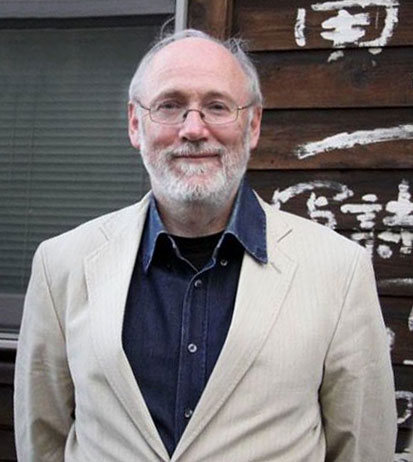
Born in Dublin in 1959, the poet, playwright and novelist Dermot Bolger worked as a factory hand, library assistant and small press publisher before settling for the precious life of a full time writer in 1984. He lives in Dublin.
The Novels of Dermot Bolger
Bolger is the author of fourteen novels. His first three novels, Night Shift, The Woman’s Daughter and The Journey Home form a loose trilogy of standalone books: each set in a different decade in his native working-class suburb of Finglas.
More recent explorations of contemporary Ireland, like The Valparaiso Voyage, Tanglewood and The Fall of Ireland have been described by Colum McCann as ‘about the implosion not only of the economy in the mid-2000s, but the implosion of marriage and morality and memory too. Bolger does it masterfully, as always. He has been prying open the Irish ribcage since he was 16 years old’.
His historical novels are based on real-life events that contextualise the Irish experience within 20th Century European history. The Lonely Sea and Sky concerns a tiny Irish ship voyaging to Lisbon during World War Two. His two linked novels, The Family on Paradise Pier and An Ark of Light, trace the experiences of a Irish woman throughout the 20th Century, as glimpsed through her family’s involvement with the Spanish Civil War, the Soviet gulags, London during the Blitz, the hidden dangers of 1960s gay life and the hard-won final sanctuary of a small caravan in old age in a Mayo field.
Bolger devised the best-selling collaborative novels, Finbar’s Hotel and Ladies Night at Finbar’s Hotel. Set in a fictional Dublin hotel, each novel contains seven chapters written by seven leading Irish writers, with the secret of who wrote each chapter never revealed.
In September 2020, forty-four years after the publication of his first short story, Bolger published his debut collection of stories, Secrets Never Told, in which a daughter searches a foreign city for her missing father, hoping to uncover the secret behind his disappearance; a widow tries to hunt down an unknown woman who secretly leaves flowers on her husband’s grave, tormented by doubts they cause about her past; A former lover of Roger Casement standing among crowds at his state funeral, paying silent homage to the secret world they were forced to inhabit; a novelist at a book launch is confronted by the only other person aware of the secret behind his success and a child is randomly knocked down outside the home of a woman who seems powerless to prevent her garden wall being transformed into a permanent shrine. They were described by his publishers as “intricate and subtle short fictions by a master storyteller that peer under the veneer of our lives, delve into the secrets that bind relationships together or tears them apart, and create worlds where people discover how nothing about their past is truly certain. There are always truths just beyond reach that would make sense of their lives if they only knew how to unlock them.”
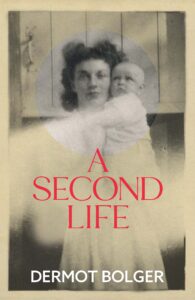
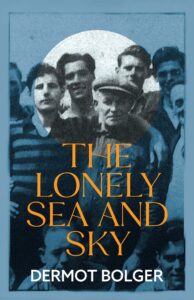
A list of his novels are available on the bibliography page. Translation rights enquires should be addressed to Edwin Higel, Publisher, New Island, edwin.higel@newisland.ie or Mariel Deegan, General Manager, mariel.deegan@newisland.ie
The Plays of Dermot Bolger
The Poetry of Dermot Bolger
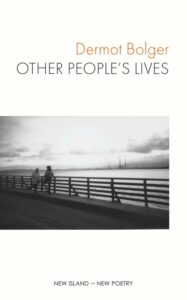 Although better known as a novelist, Bolger has always been first and foremost a poet. In 2015 he published That Which is Suddenly Precious, his New and Selected Poems, which distilled work from nine previous collections, ranging from teenage poems up to his 2012 sequence, The Venice Suite: A Voyage Through Loss. Paula Meehan – then Ireland Professor of Poetry – noted that it allowed readers to see ‘the span of Dermot Bolger’s lyric sensibility – from young and tender nature songs that reach to encompass the drama of the new estates and to find room for the wounded and broken, right up to songs of experience where a maturity of vision matches a maturity of style. A canny and uncanny selection: how crucial to the novels and the plays the poet in him has been comes clear here; how faithful he’s stayed to his people comes clear; how much honour he’s paid to their struggles comes clear; how much love has animated his work comes crystal clear.’
Although better known as a novelist, Bolger has always been first and foremost a poet. In 2015 he published That Which is Suddenly Precious, his New and Selected Poems, which distilled work from nine previous collections, ranging from teenage poems up to his 2012 sequence, The Venice Suite: A Voyage Through Loss. Paula Meehan – then Ireland Professor of Poetry – noted that it allowed readers to see ‘the span of Dermot Bolger’s lyric sensibility – from young and tender nature songs that reach to encompass the drama of the new estates and to find room for the wounded and broken, right up to songs of experience where a maturity of vision matches a maturity of style. A canny and uncanny selection: how crucial to the novels and the plays the poet in him has been comes clear here; how faithful he’s stayed to his people comes clear; how much honour he’s paid to their struggles comes clear; how much love has animated his work comes crystal clear.’
In 2021 he was the recipient of the Lawrence O’Shaughnessy Award for Poetry from The University of St. Thomas in America, allowing him, as he observed, to finally be able to use the words “poetry” and “money” in the same sentence, forty-seven years after writing his first poem. In the summer of 2022 his latest collection of poetry, Other People’s Lives, will be published by New Island.
Publisher, Editor and Journalist
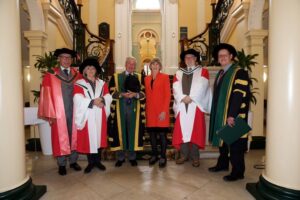
At the age of eighteen Dermot Bolger established Raven Arts Press, which became one of Ireland’s most innovative publishing houses. It released debut novels by Patrick McCabe and Eoin McNamee; debut poetry collections by poets like Sara Berkeley, Matthew Sweeney, Philip Casey, Rosita Boland and Michael O’Loughlin; first non-fiction books by writers like Colm Tóibín, Fintan O’Toole, Katie Donovan, Kathryn Holmquist and Ferdia MacAnna. Raven also published landmark memoirs about previous hidden aspects of Irish life like The God Squad by Paddy Doyle and Song for a Poor Boy by Patrick Galvin; the first English language translations of Irish language poets like Nuala Ni Dhomhnaill and Michael Davitt; and major books by such writers as Sebastian Barry, Anthony Cronin, Jennifer Johnston, Paul Durcan, Francis Stuart and Michael Hartnett. In 1992 Dermot Bolger closed Raven Arts Press to help co-found New Island Books, which has become a leading Irish publisher, releasing landmark books like Are You Somebody? by Nuala O’Faolain and Suffer the Little Children by Mary Raftery and Eoin O’Sullivan.
He is no longer involved in day-to-day publishing and unfortunately, due to time pressures, is not in a position to read or comment on unsolicited manuscripts or poems sent to him c/o this website.
He has edited numerous books, including The Picador Book of Contemporary Irish Fiction and Francis Ledwidge’s Selected Poems (New Island Books), which has an introduction by Seamus Heaney. In 1995, along with the poet’s nephew, he unveiled a monument on the spot where Francis Ledwidge was killed and in 2017 gave the oration at the poet’s grave on the centenary of his death.
Bolger has been Writer Fellow in Trinity College Dublin, Playwright in Association with the Abbey Theatre and Writer in Residence in Farmleigh House, Dublin and at the National Museum of Ireland. A member of Aosdána, he is a regular contributor to all major Irish newspapers, has written for The Guardian, The Observer and Le Monde and was named Commentator of the Year at the 2012 Irish National Newspapers Awards. In May 2022 he received an honorary doctorate in literature from the National University of Ireland.
He makes himself available for a limited number of readings, talks and public conversations each year in Ireland and abroad. For enquiries please use the contact page of this site.